Breeding: Realizing Leap-forward Development, Making a Good Fight for Seed Industry.






Congested high-speed, crowded railway stations, busy airports …
Are you stuck in traffic when you go home for the Spring Festival this year?
During the period of Spring Festival travel rush this year (from January 26th to March 5th), the flow of people across the country will hit a new record high, reaching 9 billion.
9 billion people. What is this concept? This is almost twice that of 2023 and three times that of 2019.
However, the traffic jam does not only happen during the Spring Festival, but also the daily traffic situation is not optimistic. According to the report, drivers in some cities spend more time and more money in traffic.
Not only that, but today’s transportation mode has also undergone tremendous changes compared with the past.
Although the transition to telecommuting and mixed work has reduced the traffic flow during traditional commuting hours to some extent, it has also made the traffic pattern more unpredictable than in the past, thus putting pressure on the traditional traffic management system. In addition, traffic is not limited to motor vehicles, but pedestrians are also a key factor in traffic.
Just like Shibuya Crossing in Japan, it is the busiest crosswalk in the world, with more than 2 million people crossing Tokyo every day. Every time the traffic lights change, about 2,500 pedestrians will bravely cross the four-way intersection, which is called "Shibuya Battle", and the Japan Tourism Bureau describes this crossing as "walking between manic chaos and perfect synchronization".
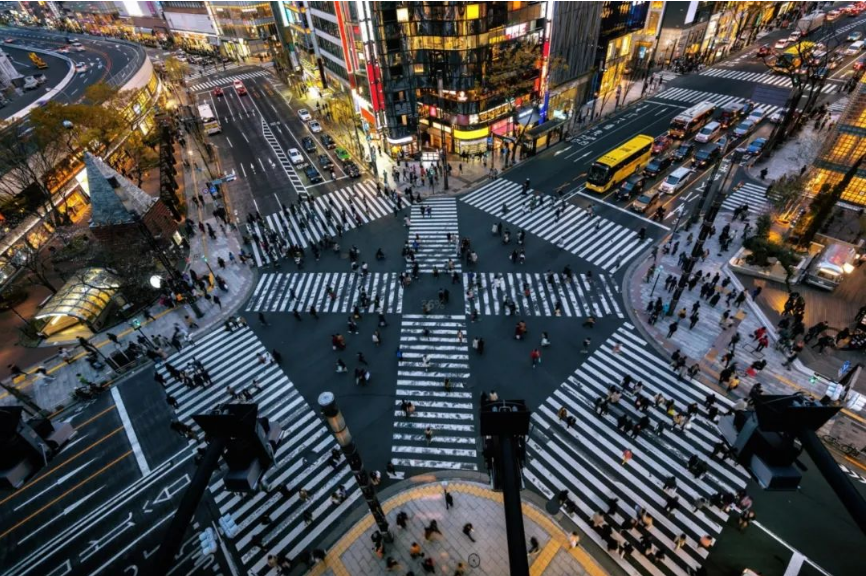
To make matters worse, cities are often stretched financially and materially, and cannot accommodate more people in a smaller space. In this atmosphere, how to provide solutions to alleviate congestion, reduce carbon emissions and protect the safety of citizens when they move in different places is an arduous task facing urban planners.
around the world
Methods of reducing traffic flow
Faced with this situation, cities all over the world have begun to reduce the tasks of cars on the road and adopt various strategies to stop the passage of private cars.
Paris has announced ambitious plans to become one of the most suitable places for cycling in Europe. However, the labyrinthine streets with a long history interweave ancient and modern, which limits the implementation of the plan. In order to alleviate traffic congestion, urban planners are working hard to build permanent and isolated bicycle lanes and increase 180,000 bicycle parking spaces.
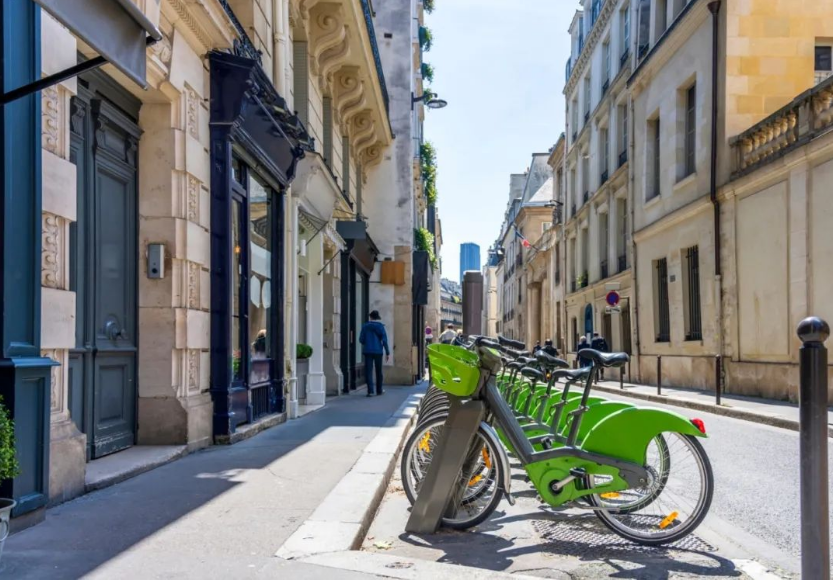
London is another ancient European city that deals with traffic jams and air pollution. The city is expanding its ultra-low emission zone (ULEZ) to cover the whole city. For this reason, old car owners with high emissions are required to pay a daily fee to drive anywhere in London. In addition, the design route of public transport in London is also very humanized, with a reasonable combination of different modes of travel. For example, London takes extremely short-distance walking, short-distance convenient buses and bicycles, short-distance subways and long-distance trains as the skeleton, and at the same time, it assists with the system of motorcycle self-driving charging, restricts parking spaces in the central area, and has developed car service in short rent to divert various travel needs.

In Tokyo, walking and public transportation are the two most popular modes of travel, followed by cycling. According to the report, the car utilization rate in Tokyo is the lowest in the world. Because officials are not allowed to park on the street, car owners have to pay sales tax, annual tax and biennial inspection fee to own cars, which makes it difficult and expensive to own cars in Tokyo.
Denmark uses bicycles instead of cars to solve traffic congestion. Half a century ago, the Danish capital was almost full of cars. However, after changing the policy and the street greening campaign, the roadside parking lot was replaced by safe and independent bicycle lanes, which increased the proportion of bicycles in all commuting in Copenhagen from 10% in 1970 to 35% today. In 2016, for the first time, the number of people riding bicycles exceeded that of people driving.
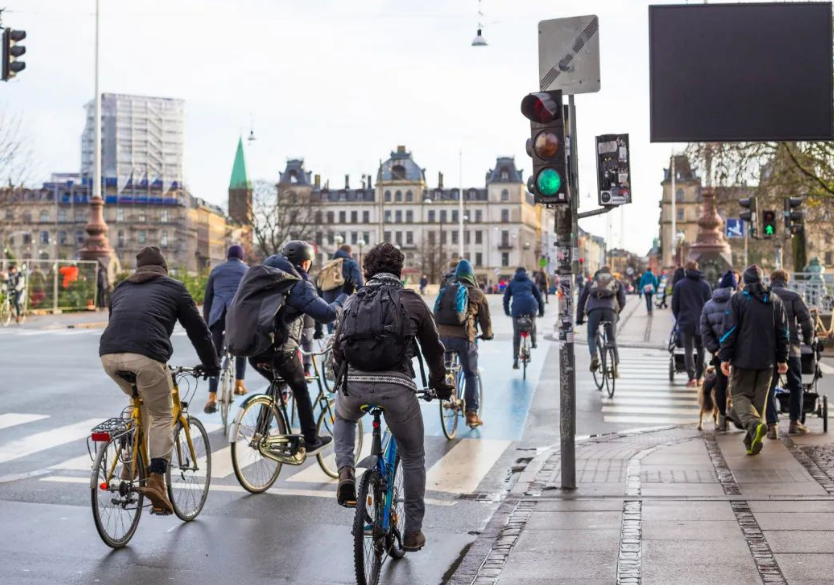
The urban congestion in Seoul, the capital of South Korea, was once as bad as that in Beijing. Therefore, the South Korean government doubled the gasoline tax with policy control, and imposed congestion charges on two main roads in the city center during the most congested period, each of which received 2,000 won. However, it also stipulates that if there are more than three passengers in a car, it can be exempted from payment. At the same time, the price of urban public parking lots was raised, and the number of parking spaces attached to commercial centers and office buildings was also reduced, which reduced the traffic volume of cars by 9%, including cars by 53% and doubled the traffic speed.
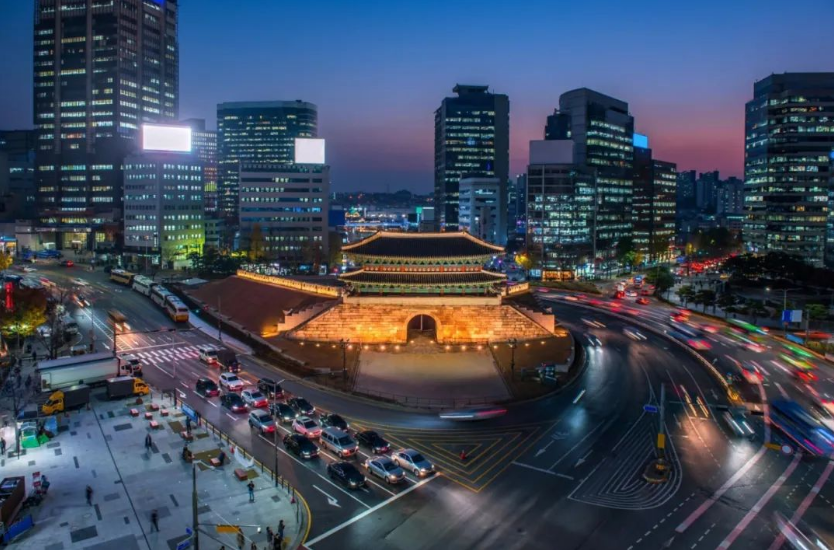
There are many ways for cities around the world to reduce traffic flow, such as charging higher fees for parking in busy areas or opening them only to residents, setting more parking spaces near public transport and providing more convenient driving alternatives to further reduce road congestion.
These non-technical methods to prevent the use of private cars may be effective, but they can only play a role in reducing traffic congestion. Adding intelligent traffic management technology supported by artificial intelligence can help simplify the remaining traffic congestion outside non-technical methods and make everyone’s roads faster and safer.
city planning
Is the next frontier of digital transformation.
Urban planning, especially traffic management, is a mature field of technological innovation. Artificial intelligence can process a large amount of data for forecasting modeling and respond to any change of forecasting behavior in real time, which makes it an ideal choice to solve traffic management problems.
Unprecedented progress in the field of artificial intelligence, coupled with the availability of powerful computing suitable for edge deployment and the continuous improvement of economies of scale, make smart city technology feasible in cross-regional aspects. Edge artificial intelligence can help improve the efficiency, safety and sustainability of mobile travel.
The availability of edge computing and the huge processing power required by artificial intelligence are creating catalysts for smart digital cities. Edge artificial intelligence can not only improve the results, but also be successfully applied to mature cities with aging infrastructure and fast-developing cities that are difficult to accommodate the growing population.
Facing the edge demand of smart cities, Dell Technology has launched the most comprehensive edge server product line in the industry, covering near, middle and far edge scenes. For example, the "Far Edge" server PowerEdge XR4000, as the shortest server in the PowerEdge series, is 60% shorter than the traditional data center server, and can be hung on the wall and stacked, which is very suitable for the edge scene where land is scarce.

Moreover, PowerEdge XR4000 is equipped with Intel Xeon D scalable processor, with up to 32 Pcle Gen4 channels and up to 20 processing cores, and provides more innovations by adding optional witness nodes, which makes it possible to deploy virtual machines that were previously unavailable due to delay or bandwidth constraints.
In addition, there is Dell NativeEdge, an edge operation software platform, which can support large-scale automatic management of edge infrastructure and applications and help simplify the arrangement and expansion of edge environment. Dell NativeEdge can speed up the lifecycle management of edge applications by 22 times, realizing potential cost savings, return on investment or other benefits.

As the world’s leading global infrastructure provider, Dell Technology has rich experience in handling the video workload of urban traffic and analysis cases with the help of the industry-leading computing platform Dell PowerEdge server and storage product portfolio, providing organizations with the necessary infrastructure and helping to provide end-to-end proven solutions to build a digital future.
Zhongxin. com, Hangzhou, November 3 rd (Shao Yanfei, Fu Feiyang) A history of Chinese ceramics, half of which is in Zhejiang; A history of Zhejiang ceramics, half in Longquan. The traditional firing technique of Longquan celadon began in the Three Kingdoms and the Jin Dynasty, flourished in the Song and Yuan Dynasties, and reached its peak in the Southern Song Dynasty. It is a "cultural symbol" juxtaposed with Song Ci and Song Painting, and is also the first ceramic project selected in UNESCO’s Representative List of Intangible Cultural Heritage of Humanity.
"Longquan celadon is well deserved ‘ Porcelain sea pearl ’ , exchange and learn from each other ‘ Cultural emissary ’ 。” Dan Jixiang, president of China Cultural Relics Society, commented on Longquan celadon.
Recently, the 5th World Celadon Conference (hereinafter referred to as Celadon Conference) was held in Hangzhou. The reporter interviewed many experts and scholars, celadon craftsmen and celadon culture lovers from home and abroad to explore the story behind Longquan Celadon — — Since it was passed down more than 1600 years ago, why is the Millennium kiln fire endless?
The watch relay of generations
People are the key factor in the inheritance of a skill.
Weisyun Lo, a master of arts and crafts in China and a celadon craftsman born in 1962, is now training more than 30 apprentices. In his view, it is necessary not only to teach porcelain art, but also to inherit ingenuity. "Let more young people have creative enthusiasm for porcelain art, so as to avoid the talent gap and truly realize the inheritance and development of Longquan celadon."
In fact, Weisyun Lo himself became famous. His teacher, Xu Chaoxing, has more than 500 skill inheritors, and has trained three China arts and crafts masters, including Weisyun Lo. The reporter from Zhongxin. com learned that the older generation of celadon craftsmen attach great importance to the inheritance of skills. It is precisely because of their generosity that Longquan celadon can be succeeded.
"In this exhibition, I brought two works, Prosperous Life and Peace. The former conveys an all-inclusive aesthetic feeling with a round and thick shape, and the flower-drawing technology of the flourishing peony symbolizes the prosperity of the motherland; The latter combines the local cinnabar porcelain clay in Longquan with the moist plum green glaze, reflecting the minimalist beauty of Song Yun culture. " At the "Song Porcelain Dreaming of China" held in conjunction with this celadon conference — — At the celadon immersive interactive art exhibition, Xu Xing, a celadon craftsman born in 1988, said.
Xu Xingxiao said that nowadays, the "post-waves" are endless, and he is no longer the youngest among his peers. A large number of "post-90 s" celadon craftsmen are participating in various competitions and exhibitions with excellent works.
"I met Longquan celadon and was attracted by its literati temperament at first sight." Liu Hao, a post-90s celadon craftsman, said that Longquan celadon is in line with China’s traditional culture. He hoped to use celadon culture as a carrier to open another window for visitors to understand the cultural and social features of the Song Dynasty and appreciate colorful Chinese culture, and also to use the platform of the World Celadon Congress to let people feel the beauty of celadon and the prosperity of Song Wenhua more intuitively.
Since the Song Dynasty, Longquan celadon has been exported to more than 50 countries in Asia, Africa and Europe. In the reporter’s opinion, celadon culture crosses mountains and seas and goes to the world from a small town located in southwest Zhejiang, which requires celadon craftsmen and young and energetic celadon culture communicators.
Wu Aizhu, a celadon enthusiast and self-media blogger who has settled in Hangzhou, is attending the World Celadon Congress for the fifth time. "The color of Longquan celadon is very beautiful, and the exhibition of this celadon conference has made me feel refreshed." Wu Aizhu said that Hangzhou has a profound cultural heritage. Promoting and spreading Longquan celadon here is expected to gather more information flow, technology flow, commodity flow and talent flow in a short time.
"In the training of Longquan celadon-related industries, we can build a traditional apprenticeship system, social human resources training, and ‘ Three-track system ’ Training mode. At the same time, we can introduce high-end talents and gather scientific research strength by relying on collaborative innovation platform, Industry-University-Research platform, enterprise research institute, local research institute and various research bases. " Zhou Xiaofeng, deputy director and professor of lishui university Scientific Research and Local Cooperation Department, said.
During the opening ceremony of this year’s celadon conference, many celadon craftsmen from 1980s and 1990s participated in the activity of "Celadon UP" and had a lively discussion on the inheritance and development of Longquan celadon. Among them, some young celadon craftsmen talked to the older generation of celadon artists, exchanged creative experience and talked about future development. The "baton" of celadon culture is quietly passed on in gossip … …
Password of Common Wealth in Porcelain
One side’s industry is rich, and the other side’s people. Celadon is to Longquan what shoes and boots are to Wenzhou and private enterprises are to Zhejiang. Thousands of years of inheritance, the kiln fire does not go out. Entering Baoxi Township, Longquan City, 13 Gulong kilns are shining under the local repair and protection.
In recent years, Longquan has devoted itself to decoding the genes of celadon culture, telling the stories of celadon culture, and relying on the well-preserved Gulong kiln in Baoxi Township in Ming and Qing Dynasties, it has launched the traditional dragon kiln firing activity of "never extinguishing the kiln fire", and integrated it into the special exhibition experience links such as blessing ceremony, blessing ceremony, saggar opening, online auction and dragon kiln banquet, and combined the inheritance of celadon culture with the innovative development of rural tourism.
It is understood that the "Guyaoli B&B" in Baoxi Township is the first Longyao Celadon Living Museum B&B.. Here, visitors can see the well-preserved ancient kiln, experience the whole process of firing celadon by the ancients and enjoy the pleasure of making porcelain.
According to the data, there are more than 60 farmhouses and homestays in Baoxi Township, and a number of fine homestays such as "returning from strangers", "Ancient Kiln", "Fengshutan Farmhouse" and "Bageshu Starry Tent Hotel" have been cultivated successively, effectively promoting the development of regional tourism.
Take Xitou Village, Baoxi Township as an example. In recent years, the village has continuously amplified the driving role of celadon culture, effectively extended the consumption time of tourists, guided rural sages and villagers to develop cultural tourism formats, expanded the night economy, and created a "white+black" tourism consumption model. It is understood that it has achieved an average annual tourism income of more than 30 million yuan, and many derived formats have enabled villagers to increase their income and get rich at their doorstep.
Jin Chaojun, a wanderer who has been wandering outside for many years and has been in the shopping mall for a long time, resolutely chose to return to Xitou Village for a second venture in the year of no doubt. He said that the increase in operating income is only a part of rural revitalization. More importantly, the IP of "Never Extinguish Kiln Fire" has improved the cultural consciousness and cultural self-confidence of all villagers.
According to statistics, by 2021, Longquan celadon has more than 20,000 employees, and there are more than 2,600 celadon manufacturers and workshops, including 5 enterprises above designated size; There are many masters and young talents in celadon industry, and the annual main business income is 1.714 billion yuan. Longquan celadon industry has become one of the local pillar industries and plays an important role in promoting common prosperity.
"Longquan celadon industrial structure still has room for further optimization and adjustment, which can be subdivided into various fields — — Create more celadon works featuring handcraft, small batch, quality and artistry; Seek breakthroughs in the fields of building ceramics, industrial ceramics, daily-use ceramics, bioceramics and special ceramics, and enhance added value … …” Zhou Xiaofeng said that Longquan celadon should also build a complete industrial chain consisting of raw material production, material research and development, equipment manufacturing, creative design, creative production, product packaging, online marketing and cultural communication.
Iterative upgrading of porcelain-making technology
From "looked up to" ritual vessels to "flying into ordinary people’s homes" daily necessities, Longquan celadon’s porcelain-making technology is also constantly upgrading.
Recently, many experts, scholars and industry professionals from home and abroad enthusiastically discussed the development of Longquan celadon technology in a series of forums, such as the theme forum of "Celadon Rejuvenation and Common Prosperity", and actively offered suggestions.
"Now the development of Longquan celadon industry is in line with the times, sharing the new achievements of scientific and technological development, and surpassing the ancients in raw material processing, molding methods and kiln firing." Zhou Shaohua, a professor at Zhejiang University and chief expert of Longquan celadon industry, said.
Zhou Shaohua said that from the dragon kiln to the coal kiln, to the liquefied gas kiln and then to the electric mixing, the kiln and firing technology represented by the "celadon high-temperature kiln controlled by electric mixing computer automation" are enough to envy the ancients; The application of digital machine tool finishing technology to porcelain is not only accurate in modeling, but also low in cost and large in output, which is a typical example of "stones from other mountains can attack jade"
As it says, Longquan celadon with a long history has not been lost in the long river of time, and the key lies in technology and innovation — — In 2020, Longquan celadon work "Clover Burned Porcelain Fragrance Insertion" traveled around space on the Long March 5 B carrier rocket; In July this year, Longquan celadon screen fan appeared in Hangzhou National Edition Pavilion, and more than 200 layers of celadon screen fans showed the Song Yun Fenghua &hellip that has been flowing for thousands of years; …
"We have successfully established an innovative service platform for Longquan celadon sword industry in Zhejiang Province, and introduced advanced equipment such as intelligent kiln, four-axis linkage carving machine and glazing machine to solve the problems of mechanization, intelligence and batch production." Hu Xianru, director of Lishui Economic and Information Technology Bureau, said.
Development is always accompanied by challenges. In the process of iterative upgrading of Longquan celadon technology, there are also problems that need to be solved urgently.
"In terms of scientific and technological innovation, Longquan celadon scientific research investment ‘ Be short of money ’ The utilization rate of porcelain glaze is low, and the standardized production capacity needs to be improved. It is necessary to increase investment in related fields and continuously promote technological innovation. " Zhou Xiaofeng said.
In Zhou Xiaofeng’s view, the technological innovation and artistic innovation of Longquan celadon should be inherited, transformed, integrated and innovated with cultural confidence without giving up the celadon cultural genes. "Under the condition of modern technology and diversified aesthetic development, it is inevitable to moderately carry out technological innovation and artistic innovation on traditional techniques, but it is necessary to maintain ‘ Degree ’ And ‘ Special ’ Under the premise of realizing the modern performance of traditional celadon techniques and the intangible bearing of modern cultural and creative products. "
At present, the digital reform has also brought profound changes to Longquan celadon.
As one of the highlights of this celadon conference, "Song porcelain dreams of China" — — The immersive interactive art exhibition of celadon attracted many participants to stop and watch. Two large digital screens in the exhibition area reproduced the past lives of Longquan celadon from four sections: Life, Rite and Music, China and World.
"At present, we are focusing on building ‘ Longquan celadon non-legacy industry online ’ Digital application, build an online platform for celadon exhibition, build a celadon non-legacy resource library, classify, stereo record, graphic, audio and video, VR exhibition and other all-media materials into a unified database, and provide a good display and development platform for celadon craftsmen and their works. " The relevant person in charge of Longquan City said. (End)
CCTV News:In the early summer, a large number of seasonal vegetables were listed in Zhengzhou, Henan Province, and the prices of tomatoes, long beans, spiral peppers and other seasonal vegetables dropped significantly compared with a week ago.

In Zhengzhou Wanbang Agricultural Products Trading Market, the reporter saw that fresh seasonal vegetables such as tomatoes, long beans, spiral peppers, cucumbers and eggplants occupied half of the market, and buyers came to the goods in an endless stream. Just at 9 o’clock, many stalls had sold more than half of the vegetables.
Vegetable wholesaler Li Xin:The daily volume is about six or seven tons. Compared with the previous period, the sales volume has increased, because it is cheaper.
At present, with the centralized listing of a large number of local vegetables, the prices of some vegetables have fallen, among which the most obvious decline is tomatoes and long beans, and the prices have dropped by more than half in just one week.
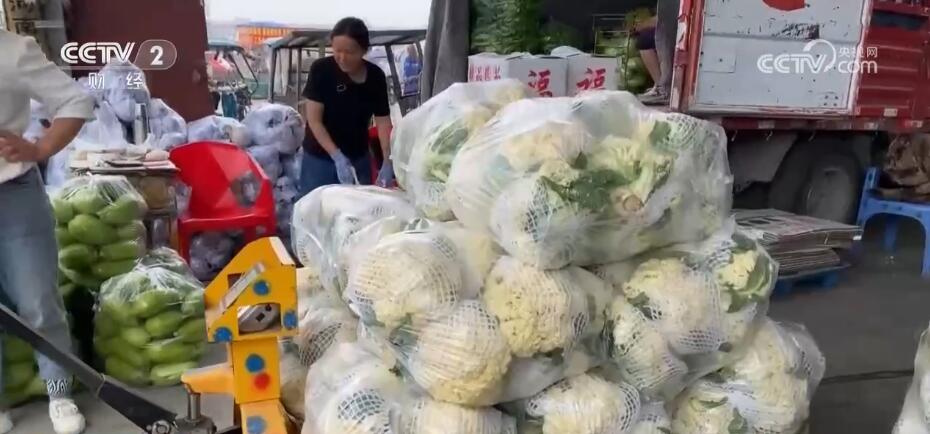
Vegetable wholesaler Li Xin:(Tomatoes) Today’s price is about seventy-eight cents (per catty), which is one dollar (per catty) when it is brought to the market, compared with two dollars and sixty-seven dollars some time ago.
Vegetable wholesaler Li Jingfeng:One dollar a day (money), sold more than four dollars yesterday, and sold more than three dollars today. The prices of local dishes have all come down, and they are all cheap. The food is still going down, and everything is going down.
Market managers told reporters that every year 5-mdash; July is the seasonal correction period of vegetable prices. Recently, due to the increase in the supply of western vegetables to the East and the large number of local vegetables on the market, the average price has dropped by about 50%.
Cctv news(International News): Measles is a highly contagious disease, which can induce many complications and even lead to death. The World Health Organization Regional Office for Europe recently released a report that the number of measles cases in Europe in the first half of 2018 increased significantly compared with previous years, setting a record since 2010.

The measles epidemic in Europe "rises"

The data shows that in the WHO European region, the number of people infected with measles in 2016 was more than 5,000, and the number of infected people in 2017 reached 24,000. In the first half of 2018 alone, the number of infected people nearly doubled compared with 2017, reaching 41,000, and at least 37 people were killed.
The unsatisfactory vaccination rate led to the outbreak of the epidemic.

According to WHO, the number of measles cases in Europe has surged this year, reflecting that many children and adolescents are not vaccinated or are not fully vaccinated, which is caused by various reasons.
First of all, some people living in remote areas have difficulty in obtaining immune resources provided by the public health system because of limited conditions.
Secondly, there are people who don’t pay attention to vaccination at all ideologically.

BBC reporter Mundasa:
Many people think that measles is just a rash.
But the problem is much more serious than this.
It can induce a variety of serious complications.
Such as brain swelling meningitis
It can also lead to blindness and damage to the liver.
The "anti-vaccine" campaign spread false information

In addition, some medical experts pointed out that there are too many rumors and false information about the safety of vaccines, which has misled people. For example, in recent years, the "anti-vaccine" movement has arisen in some western countries. The evidence often cited by the campaign is a research conclusion made by a British doctor named wakefield 20 years ago, that is, there may be a link between measles, mumps and rubella vaccine and autism. This study was later proved to be seriously wrong and deceptive, and the magazine that published the relevant paper also withdrew the paper.
However, WHO said that the publication of the paper caused panic, which led to a decline in vaccination rate and a related epidemic.
BBC reporter Mundasa:
The problem is social media.
The speed of spreading these error messages is too fast.
The influence is too wide.
Public health experts are really worried
Some parents choose to listen to false information.
Without listening to the important information released by experts.
That vaccines can save lives.
Can protect the lives of millions of children in the world.
Who says there is only one measles vaccine.
Just in the past 20 years
Saved more than 20 million lives.
In this regard, WHO reiterated that the benefits of vaccines far outweigh the risks. Without vaccines, more diseases and deaths will occur. European countries should improve the coverage of measles vaccination to fundamentally prevent the outbreak.

The sweeping robot is working. The picture comes from the Internet.

The user is controlling the smart home through the application on the mobile phone. The picture comes from the Internet.
Recently, Ms. Zhang, who works in Wangjing, Beijing, opened the mobile APP as usual, and her fingertips were a little lighter. The Xiaomi sweeping robot in Tongzhou’s home responded and began to clean house by house according to the previously scanned route. Remote control of the cleaning robot at home, which used to appear in science fiction movies, is now the daily life of many families.
Chatting, entertainment, housework and safety … … With the gradual maturity of artificial intelligence and Internet of Things technology, a variety of intelligent products emerge in an endless stream, from intelligent sweeping robots to smart speakers and intelligent companion robots to smart door locks and smart toilet seats. More and more smart home products "fly into the homes of ordinary people", which is becoming a popular product in life and a new trend in consumption. Data show that smart home products have become a hot spot in China consumer market, showing a trend of increasing year by year.
"Freeing hands" has become a new trend of consumption
How hot is smart home? In last year’s Tmall "double 11", China consumers showed the development potential of smart home industry to the society with strong purchase demand.
"Smart homes in 2019 are very popular, but we didn’t expect to sell so well on the first day of pre-sale." The relevant person in charge of the sweeping robot brand Cobos revealed to our reporter that a product with a price of 2,699 yuan was "swept" by consumers, and 10,000 units were sold within 32 minutes of the pre-sale.
"Smart home has become a new consumption trend. On the Tmall platform, not only smart pianos and AR voice globes have emerged ‘ Qiqi ’ Intelligent new species, traditional ‘ Black and white electricity ’ Also began to collectively transform smart home appliances. " Yang Guang, general manager of Tmall Consumer Electronics Division, said that last year, Tmall double 11’s smart home products covered 60 categories such as household cleaning, lighting, audio-visual entertainment, personal care, kitchen appliances, home security, etc., and the voice interactive products that can free hands became the latest consumption trend.
Voice assistant is one of the focuses of smart home development at present. Alibaba’s smart speaker "Tmall Elf" can realize many functions including smart home control, mobile phone recharge, take-out, playing music and so on. The intelligent voice assistant "Little Love Classmate" is connected with many smart home devices on the Xiaomi ecological chain. According to statistics, "Little Love Classmate" has been applied on more than 100 million devices.
The trend of intelligent home has attracted many related enterprises to enter the blue ocean of this market. Forward-looking Industry Research Institute predicts that the smart home market in China will reach 436.9 billion yuan in 2021.
"These little tricks are especially useful."
The emergence of 5G and the combination of AI (Artificial Intelligence) and IoT (Internet of Things) bring greater possibilities for the all-round development of smart homes.
At last year’s Huawei HiLink Eco-conference, Yu Chengdong, CEO of Huawei’s consumer business, released the "Full Scene Smart Life Strategy", covering four major scenes of "Smart Home, Mobile Office, Smart Travel, and Sports Health", aiming at creating a full scene smart life experience for consumers. In addition, Huawei also released a whole house intelligent solution.
"We have set a standard for consumers to simply experience." Zhi Hao, president of Huawei IoT, told this reporter, "Imagine working in an office in intelligent furniture, which is equipped with the whole house of Huawei. You can set working mode, rest mode, leaving mode, etc. I want to have a rest at noon. The voice says that as soon as the curtain is closed, it will help you close it, and the air purifier will be automatically put into sleep mode. Don’t look at these little tricks, they are especially easy to use. After sleeping for a while, the system was switched to working mode, and the curtain air conditioner was automatically turned on, and the experience was very good. "
Not only Huawei, but also Xiaomi’s pace in smart home solutions is accelerating. With artificial intelligence, Internet of Things and other technologies, Xiaomi Smart Home covers a wide range of user groups and has built a wealth of application scenarios.
Crack the "pain point" of industry development
The rise of smart home industry can not be separated from the support of various national policies such as "Guide to the Construction of Integrated Standardization System for Smart Families" and "Three-year Action Plan for Promoting the Development of a New Generation of Artificial Intelligence Industry (2018-2020)".
Although the smart home market has broad prospects, there are still some problems such as insufficient interconnection between products, many and scattered application scenarios, and too complicated operation.
Since 2014, Internet companies, mobile phone manufacturers and home appliance manufacturers have entered the smart home industry, but there are huge differences between smart home brands and products, and the inability to connect with each other is the biggest "pain point" that hinders the development of the industry. Zhang Jianfeng, deputy secretary-general of china national household electric appliances commercial association, said: "The value of the Internet of Things originally lies in the synergy between devices, but in the smart home market, it is difficult to forge a linked industrial collaboration platform in a short time, which will directly affect consumers’ purchase choices."
However, the situation is changing, and "interconnection" has been regarded as the key word of the next entrance battle for smart homes. Alibaba, Baidu, Huawei and Xiaomi all set up their own smart home platforms, and smart home devices began to "test the water" to support multiple smart home platform systems.
"Because on the same track, we need to help each other more." Zhi Hao told this reporter, "Everyone is running on the runway, but the mode is different. Our mode is openness. I hope that our partners will give full play to their advantages and focus on their smart home appliances, and we will do our best to open the connection service."
CCTV News:In today’s May Day special program, we are going to meet a national model worker, Wang Wenshui. He is an ordinary farmer. With his courage and boldness, he has created the history of localization and large-scale planting of American ginseng. He is a Communist party member, leading his fellow villagers to the road of poverty alleviation and common prosperity. Today, 64-year-old Wang Wenshui is still running in the fields, studying the cultivation techniques of American ginseng.
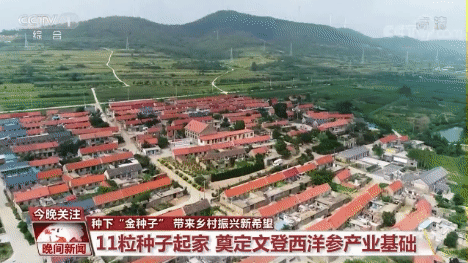
The latest cultivation of new American ginseng varieties by busy field management
Near the May Day holiday, it is the time for American ginseng to emerge. Wang Wenshui rushed to the ginseng field early in the morning to fight drugs and weed with the workers and busy with field management. This is his latest American ginseng variety. However, a few years ago, American ginseng could not be planted in this land.
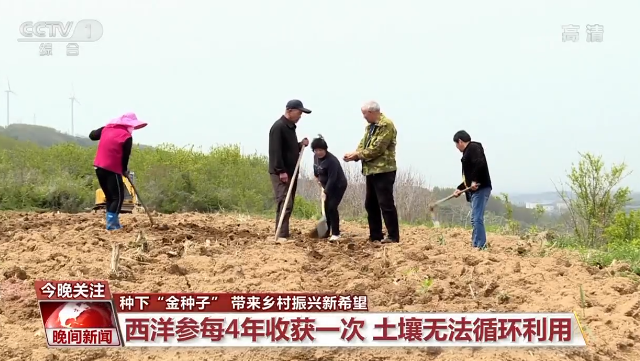
Wang Wenshui, Secretary of the Party Branch of Kouzili Village, Zhangjiachan Town, Wendeng District, Weihai City, Shandong Province:American ginseng itself has a kind of fungus. After we harvest American ginseng, some broken roots rot in the ground, which causes soil pollution. If you replant American ginseng, it will easily rot, and you can’t replant it for 15 to 20 years.
Kouzili Village is the birthplace of Wendeng American ginseng, and almost all the farmland in the village has been planted with American ginseng. Because the soil can’t be recycled, villagers have to go out and rent a new piece of land after harvesting ginseng every four years. This has become one of the biggest bottlenecks restricting the development of local American ginseng. Be sure to improve the soil! With such a goal, Wang Wenshui started round after round of experiments.
Wang Wenshui, Secretary of the Party Branch of Kouzili Village, Zhangjiachan Town, Wendeng District, Weihai City, Shandong Province:The 5 cm soil layer on the surface has good air permeability, and this bacterium is active quickly. So we turn this soil layer on the ground to the ground, to a depth of more than one meter, and suffocate this bacteria. At the beginning, I used shovels to shovel the land, and it took more than ten days to turn over an acre of land. In the later period, we had mechanization, and large-scale trucks could turn over more than two acres a day, which was very fast.
After 10 years of long exploration, this rural "soil expert" with little knowledge has solved the planting problem that has plagued local people for decades. This year, the planting method of deep ploughing has been applied to more than 100 acres of land.
Starting from 11 seeds, laying the industrial foundation of Wendeng American ginseng
After dealing with American ginseng for more than 40 years, Wang Wenshui’s passion has not been diminished by the passage of time. In that year, he started from 11 seeds and achieved today’s tens of billions of industries. In 1979, 22-year-old Wang Wenshui ended his four-year military career and returned to his hometown. By chance, Shandong Medicinal Materials Company handed 11 seeds of American ginseng to Wang Jizhen, Wang Wenshui’s father-in-law, for them to try planting. I didn’t expect this "foreign seed" to be "acclimatized".
Wang Wenshui, Secretary of the Party Branch of Kouzili Village, Zhangjiachan Town, Wendeng District, Weihai City, Shandong Province:There are a lot of planting difficulties, really a lot, and the transportation and communication are all very backward. Blindly, look at the symptoms with a magnifying glass and a microscope, and compare the books of crops. That’s it. Many things are repeated experiments step by step.
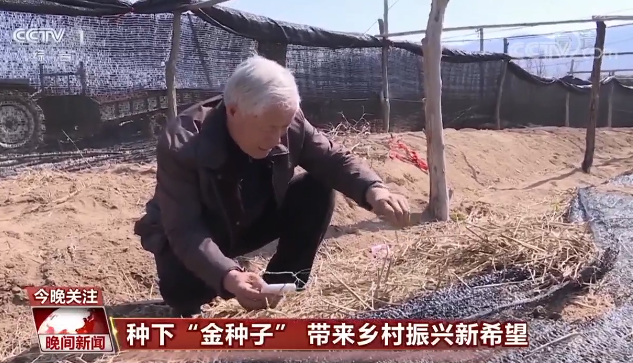
In order to record the growth environment and emergence of American ginseng in detail, Wang Wenshui and his father-in-law moved into a deserted mountain forest and recorded the light, temperature and humidity every two hours … … Finally, a month later, 11 seeds sprouted 8 seedlings. It was these eight seedlings that laid the foundation for the development of the whole Wendeng American ginseng industry in the future. Kouzi Licun was the only successful pilot among the nine American ginseng planting sites in Shandong Province at that time. However, just because the planting area on the mountain was too small, Wang Wenshui wanted to move American ginseng into the field below the mountain to plant it. Unexpectedly, the first farmland trial planting failed. After repeated experiments and comparisons, it was found that it was the soil.
Wang Wenshui, Secretary of the Party Branch of Kouzili Village, Zhangjiachan Town, Wendeng District, Weihai City, Shandong Province:We began to test and compare the soil of each plot, and finally we found out that there is a kind of resource on our mountain. Its book is called phosphorus-containing weathered soil, so we dug it out on the mountain and pushed it to our farmland one by one to improve the soil.
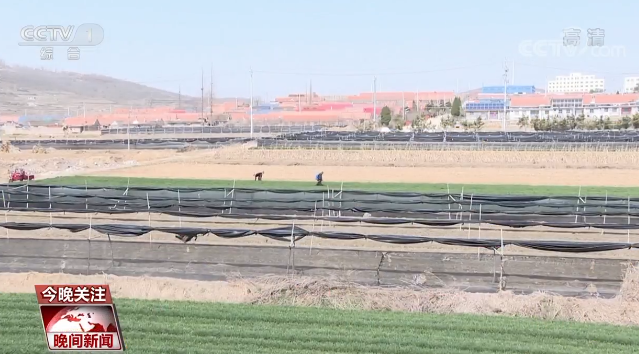
More than 40 years have passed, and the young veterans of that year are now full of white hair. At the beginning, the eight seedlings have now become a planting scale of 55,000 mu and an annual output of more than 7,500 tons. In the American ginseng market in China, 6 out of every 10 American ginseng come from Wendeng.
Work tirelessly to lead the whole town to get rich together.
"Living a good life with the big guys" is Wang Wenshui’s greatest wish. On the road to rural revitalization, he led the villagers to take off their "poor hats" and sow more and more "golden seeds" in the fields of hope. In the 1980s, it cost about 2,000 yuan to buy a catty of American ginseng seeds, which was enough to build a house. It takes 1.5 kg of seeds to plant one part of American ginseng. Such a large capital investment is unacceptable to ordinary villagers.

Tian Mingguo, a villager from Dongquan Village, Zhangjiachan Town, Wendeng District, Weihai City, Shandong Province:At that time, I was worried when I was asked to plant it. I was also afraid of losing it. Secretary Wang said, Ming Guo, there is nothing for you to plant. If you lose it, I will bear it with you. The first harvest was good, and it sold for nearly 300 thousand yuan.
In the ginseng field of Zhangjiachan Town, Wang Wenshui can often be seen. Which one encounters planting problems and which one will not build a ginseng pond, Wang Wenshui went door-to-door to guide. Wang Wenshui also wrote the experience of seed ginseng for many years into a manuscript of seed ginseng records, and donated it unreservedly to the medicinal materials station of Wendeng District Agricultural Bureau for vigorous promotion.
Wang Wenshui’s youngest daughter Wang Lin:When I was young, when I was eating at home, farmers came to dig up a diseased leaf of American ginseng and show it to my father. No matter whether my father ate the first bite or the last bite in the bowl, he always put down his chopsticks, read them first, and then finish the rest. Sometimes a meal may come to several people, and he may have to eat it several times before he can finish it.
With the growing planting area of ordinary people, how can we make money without letting everyone suffer the crime of "facing the loess and facing the sky"? Wang Wenshui took out the energy of trying to plant American ginseng and began to study all kinds of planting machinery.
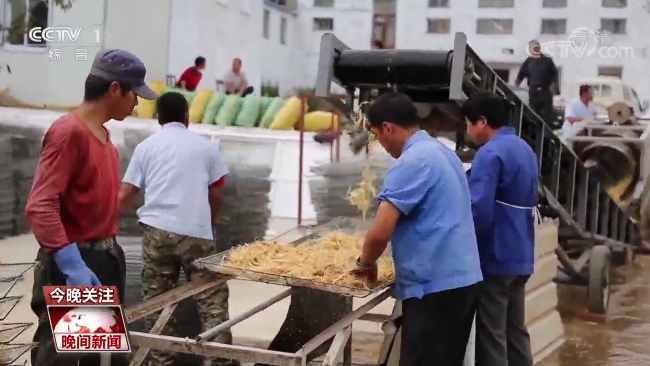
Wang Wenshui, secretary of the Party branch of Kouzili Village, Zhangjiachan Town, Wendeng District, Weihai City, Shandong Province: This machine I developed is called American ginseng fertilizer spreader. I am going to study these three hoppers to hold particles, trace elements and organic fertilizer. These three hoppers flow in the ground at the same time, so that the rotary plow can rotate in the ground, which is uniform, labor-saving, labor-saving and fast.
In addition to the fertilizer spreader, Wang Wenshui has also developed a variety of special machinery for American ginseng, such as ridging machine, ginseng washing machine and beard removing machine.

Wang Wenshui, Secretary of the Party Branch of Kouzili Village, Zhangjiachan Town, Wendeng District, Weihai City, Shandong Province:I always feel that I am still a Communist party member, and I have benefited from my own cultivation. Why can’t I be rich by myself? I have to bring all the people in the village to be rich, so that I can be happy and feel at ease … …
Today, in Wendeng, more than 3,000 farmers have planted American ginseng, and tens of thousands of employees have changed their lives and embarked on the road of getting rich by relying on American ginseng. Wendeng American ginseng has also grown from the earliest simple cultivation to more than 20 deep processing enterprises, and the added value of the industry has increased by more than 50%. Now Kouzili Village is ecologically livable and prosperous, and the appearance of the village has been greatly improved. During the May Day period, Wang Wenshui will also speed up preparations for the American ginseng deep processing workshop to be put into use in June.
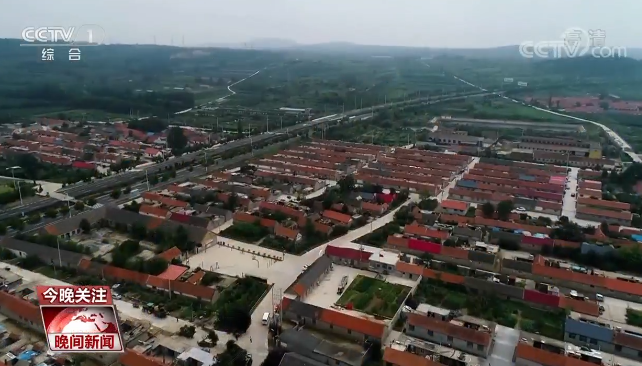
Wang Wenshui, Secretary of the Party Branch of Kouzili Village, Zhangjiachan Town, Wendeng District, Weihai City, Shandong Province:To be an industry, I think it is worthwhile for people to do one thing well in this life. My goal is to "push the car without falling down". As long as I have a breath, I will continue to fight for American ginseng.
On December 10, 2024, Wuling officially announced the launch of the four-door version of Hongguang MINIEV, and the "people’s scooter" Hongguang MINIEV family added new members! As the first four-door, four-seat A00 new energy scooter, the new car follows the gene of Hongguang MINIEV family "good-looking, good-driving, good-stopping and good-saving", and it is also a joint-name Capibala small yellow dolphin to accompany users to travel happily. The appearance of the new car was exposed for the first time, and three kinds of magic color high-definition car colors were matched with sweet and interesting aesthetic appearance, which brought high-quality new choices for users’ simple transportation.
With the increasing diversification of travel modes, people’s demand for scooters is also escalating. Wuling Automobile has an insight into the actual needs and pain points of home users in multi-person travel scenes. Based on the feedback of millions of users, with a larger body, more space and more comfortable driving experience as the core evolution point, it launched a new Hongguang MINIEV model-Hongguang MINIEV four-door version. As the only four-door model of A00 class, the new car has new doorways in many dimensions such as space, fashion, comfort and safety, and innovatively opens up the A00 class four-door scooter market!
Four doors and four seats, the driving experience has been comprehensively improved.
The four-door version of Hongguang MINIEV is designed with four doors and four seats, with a body size of 3,256 * 1,510 * 1,578 mm and a wheelbase of 2190mm, which enables the front and rear doors and the front and rear rows to get on and off independently. The spacious cockpit space and larger access head space make the rear row no longer "cat’s waist", which completely solves the use pain of inconvenient rear row access of two-door vehicles when many people travel.
Sweet aesthetic appearance, magic float color fashion eye-catching
Hongguang MINIEV four-door version is rounder and fuller in overall design, with smooth lines, giving people a delicate and lovely visual impression. The new car adopts the design concept of "sweet and interesting aesthetics", Q cute and lovely "smiling" front face, with smart "Ling Wing" LED light group and "Bauhinia" 13-inch wheel hub, every detail is sweet and fashionable, and the harvest is super high!
This new car introduces three "magic colors"-puffy blue, bubble green and sweet coffee, reflecting more different "magic colors" with color as a mirror. The brand-new car colors, such as turquoise blue and bubble green, fully draw on the natural inspiration of the sky and water color, and present a unique illusion color-changing effect with the unique seven-layer coating process at the same level, presenting colorful effects from different angles in the sun, giving both visual and spiritual enjoyment and satisfying different personality choices of young people.
Brand-new design, cute interior, romantic and warm
In terms of interior, Hongguang MINIEV four-door version adopts the design language of "cute and romantic", and the new "caramel cream" interior color scheme is dominated by light chocolate brown, decorated with cheese white, and the cockpit color is soft and comfortable, warm and healing. The whole interior trim panel has been designed with a feeling of swelling and roundness. Through the inflatable treatment of the center console, door trim panel and other positions, the look and feel are comprehensively improved, and the details are exquisite and retro, creating a fashionable and warm atmosphere.
Join hands to travel happily, Hongguang MINIEV four-door version × Capibala small yellow dolphin happy cross-border
Going on a pleasant journey together, Hongguang MINIEV Four-door Edition joined hands with Capibala Little Yellow Dolphin to create a fun and interactive gameplay. Hongguang MINIEV is the leader of transportation, and Capibala Little Yellow Dolphin is the "top stream in the animal kingdom", and the two top streams of the car industry and the cute pet industry join forces; Capibala Yellow Dolphin is very popular with its cute image of "emotional stabilizer" and "spiritual healer", which coincides with the concept that Hongguang MINIEV Four-door Edition is committed to creating a simple and comfortable travel mode for young users. This time, the two will work together to bring users a pleasant travel enjoyment. Next, Hongguang MINIEV Four-door Edition and Capibala Little Yellow Dolphin will deepen cross-border linkage, launch more interesting and happy interactive experiences, and jointly lead young people to explore a new era of happiness!
The new four doors are very open! As a new member of Hongguang MINIEV family, Hongguang MINIEV Four-door Edition innovatively opens up A00 four-door scooter market based on millions of users’ travel scenarios, and brings users a pleasant and comfortable travel experience in conjunction with Capibala Little Yellow Dolphin. I believe Hongguang MINIEV Four-door Edition will join hands with users to start a happy journey. The new car will be booked in the near future, so stay tuned!
[car home Zhumadian Preferential Promotion Channel] At present, preferential promotion is being carried out in Zhumadian area, with the highest preferential margin reaching 7,000 yuan, which reduces the minimum starting price to 122,900 yuan. If you are interested in this model, please click "Check the car price" in the quotation form to get a higher discount.

The exterior design of 06 C-DM is mainly dynamic and scientific. The front face adopts a family-style design style, and the sharp LED headlights are integrated with the air intake grille, showing a very impactful visual effect. The overall body lines are smooth, with unique body colors and sports wheels, showing a fashionable and steady style.

The car system exploration 06 C-DM has a body size of 4501*1865*1670mm and a wheelbase of 2672mm, showing a compact and dynamic body proportion. Smooth side lines and 18-inch rims further enhance the sense of movement of the vehicle. The front and rear tyre size are both 235/55 R18, and the fashionable rim design is adopted, which not only improves the visual effect of the vehicle, but also ensures good handling performance.

The interior design of 06 C-DM is simple and full of scientific sense. The center console is equipped with a 13.2-inch floating touch screen, which supports a variety of functions, including multimedia system, navigation, telephone, air conditioning, skylight and window control. At the same time, intelligent operation can be easily realized through voice recognition control system. The steering wheel is made of leather material, which feels comfortable, supports manual adjustment up and down and back and forth, and provides flexible operating space for drivers. The seats in the car are made of imitation leather. The main driver’s seat has the functions of front and rear, backrest and height adjustment, while the co-pilot seat supports the front and rear and backrest adjustment. The second row of seats is also equipped with backrest adjustment function, so passengers can adjust their sitting posture according to their own needs to improve comfort. In addition, the car is equipped with multiple USB and Type-C interfaces, which is convenient for charging various devices, further enhancing the convenience of users.

This 06 C-DM is equipped with a 1.5T turbocharged engine with a maximum power of 115kW (about 156 HP) and a maximum torque of 220 N m. Matching the engine is an advanced DHT gearbox, which makes the vehicle perform well in power output and fuel economy.
The owner of car home said that the design of this car is a bright spot, with its online face value and the silver color of glacier, which makes people shine, just like the magic of a mobile phone changing color. In the sun, the car body is more eye-catching, in line with the aesthetics of young people, and the tough car body lines make people shine, showing the trend of the city. Driving on the road, the turn-back rate is very high, and it will not become a drip-only car like some cars. Whether driving on the road or parked on the side of the road, this car can attract many people’s attention, and many people also take the initiative to ask about the relevant information of the vehicle.